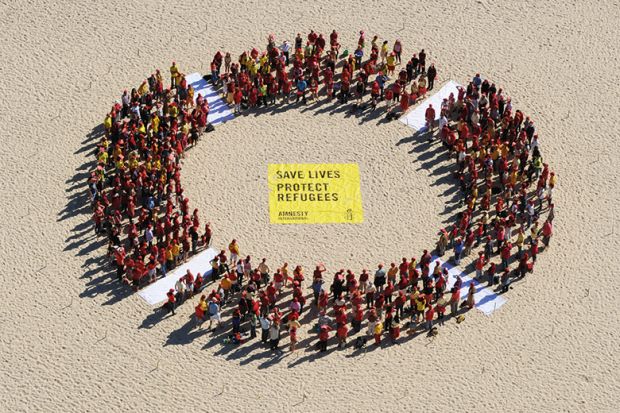Australian universities have a “moral obligation” to provide appropriate support for refugee students, yet until now institutions have been “slow” to address the issue, according to a new study.
In light of current stringent immigration policies, the “onus rests” on tertiary education to help refugees, writes Caroline Lenette, lecturer in the Centre for Refugee Research, part of the School of Social Sciences at the University of New South Wales, in her paper “University students from refugee backgrounds: why should we care?”.
She states that “supportive trajectories in higher education” can improve refugees’ “social cohesion” and “help redress some of the personal and social disadvantages” they face. Dr Lenette also believes that there is a strong utilitarian case for aiding refugee students because gaining a degree increases their potential to contribute to a country’s socio-economic advancement.
“Refugee students are some of the most motivated and dedicated students I have come across at university,” she told Times Higher Education. “They have a clear vision for what education can change in their lives and in their communities in Australia and overseas.
“However, the range of complex issues they face in the resettlement process could mean that they may not see their tertiary journey [through] to completion. Young people in particular may feel excluded from meaningful educational and employment opportunities in their new home.”
Pathways to higher education had in the past been “relatively limited” for refugees, who had often been indiscriminately “lumped together” with other migrants and international students, Dr Lenette said.
“The assumption [was] that language support was their only need,” she said. “It is only recently that universities have recognised the particular challenges that are specific to refugee students.
“In 2016, New South Wales universities committed to scholarships and policies to increase the participation of refugee students in tertiary education. This represents a great step ahead, but the ongoing support required while students are at university to ensure they complete their programmes still needs to be strengthened.”
In the conclusion to her paper, Dr Lenette points out that the refugees she has collaborated with in the past have a “strong yearning” for higher education.
“Being denied the right to education for several years in situations of conflict, exile and asylum usually translates to solid dedication at university,” she writes. “Refugee students can persevere with their studies amidst complex community and personal lives, given the right support; tertiary educated refugees also act as role models in their communities.”
She told THE that refugees valued access to a quality education “in a way few others do, because education has often been an elusive dream, sometimes for many years”. This was “particularly the case for young women, whose education may not have been a priority in different circumstances”.




